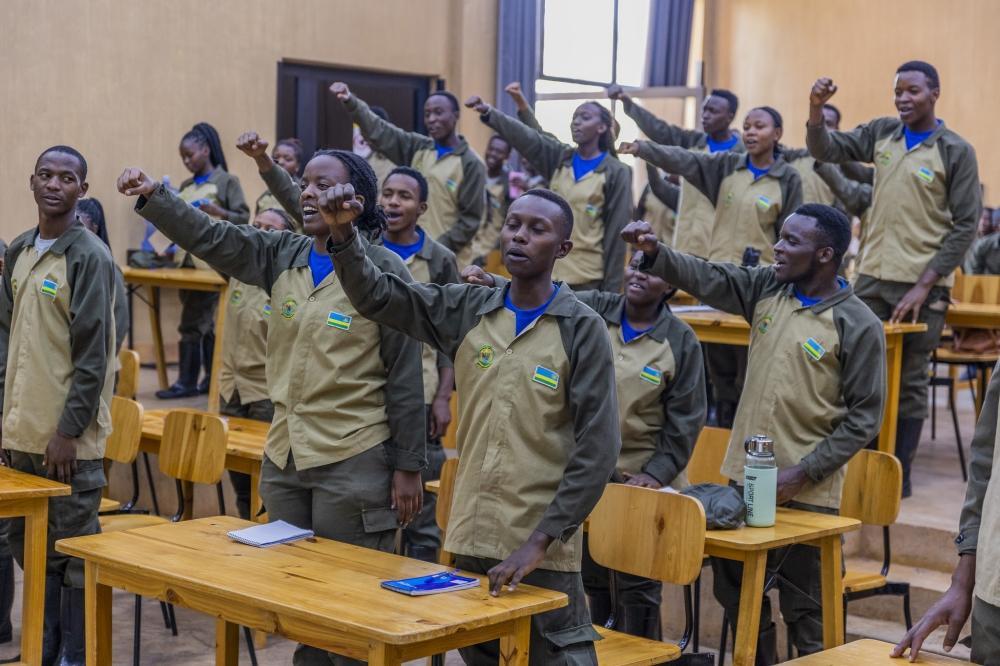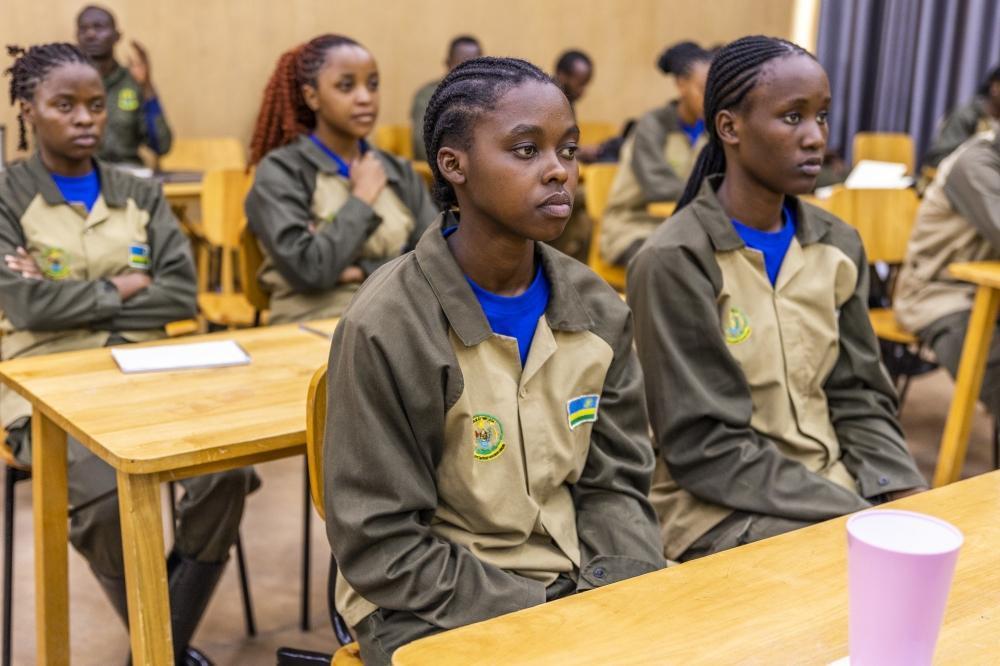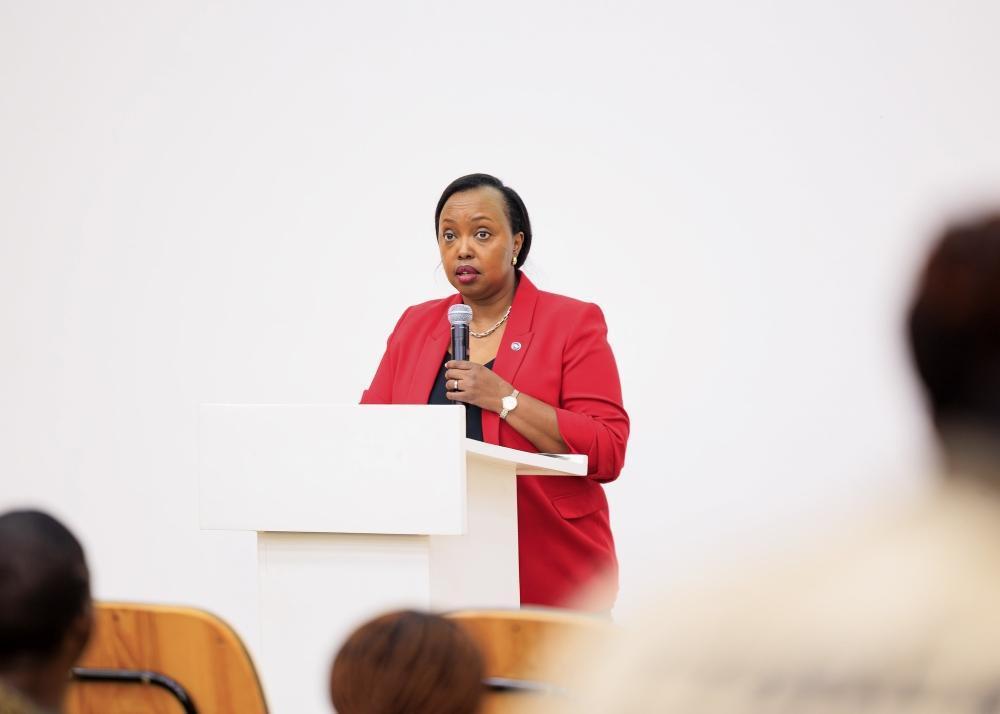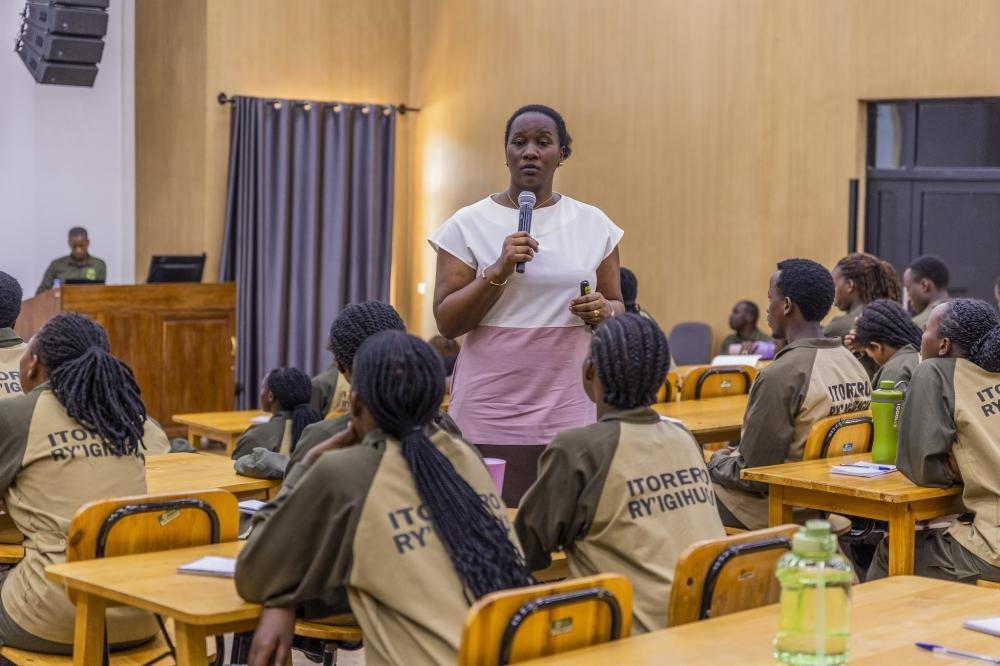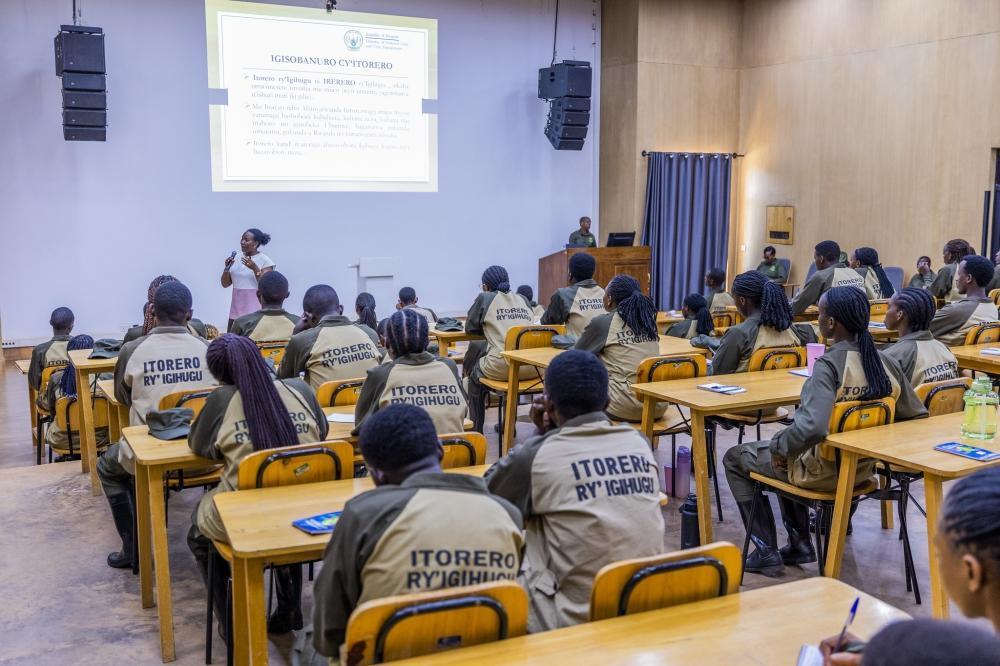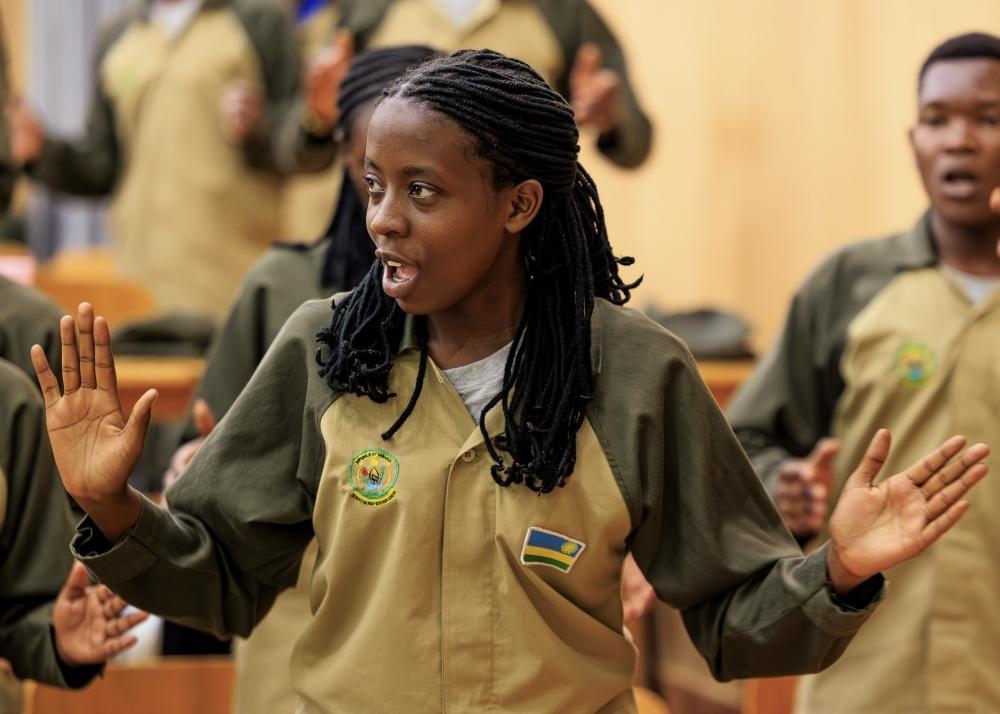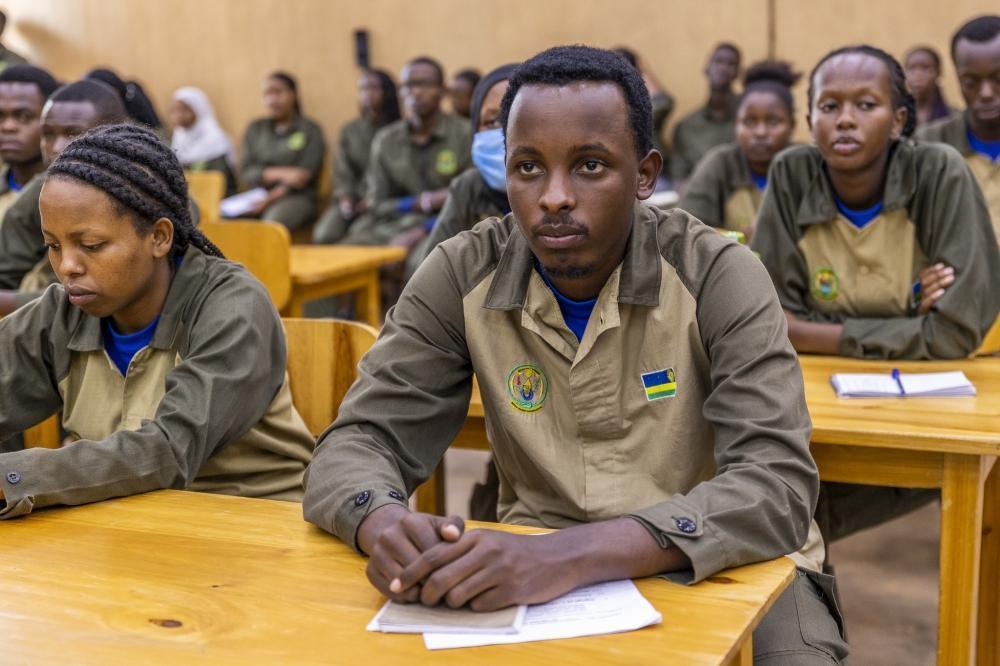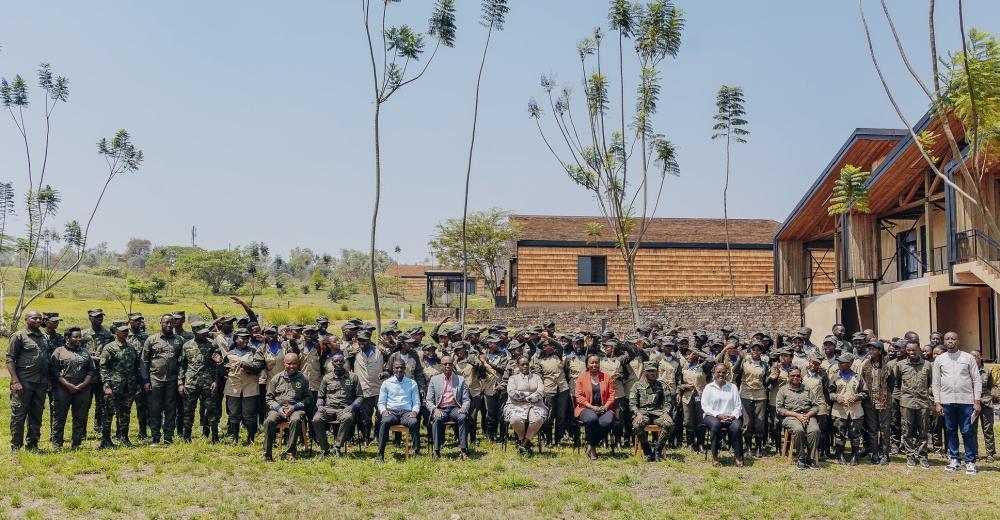Africa-Press – Rwanda. On September 1, 2025, 84 new students, 42 girls and 42 boys, officially kicked off the fifth cohort of Intagamburuzwa za RICA, a week-long Itorero training held at the Rwanda Institute for Conservation Agriculture (RICA).
Organised in partnership with the Ministry of National Unity and Civic Engagement (MINUBUMWE), this programme aims to instil patriotism, leadership, discipline, and core national values in students before they begin their academic journey.
The training, running from August 31 to September 5, is part of a policy introduced in 2021 requiring all new RICA students to complete Itorero, following past concerns about student conduct.
To date, 354 students have undergone this preparation, making this an integral part of RICA’s approach to shaping both responsible citizens and future leaders.
Trainees follow the remarks of Michelle Ntukanyagwe, Deputy Vice Chancellor for Student Affairs at RICA
In her opening remarks, Alice Kayumba Uwera, Executive Director of National Unity and Community Resilience, who represented MINUBUMWE, highlighted that the Itorero at RICA is unique because it takes place right before students begin their university journey. She explained that its purpose is to ground students in national values and cultural identity before they dive into academic life.
“What makes this Itorero different is that it comes before school starts. It’s designed specifically for RICA students; you don’t begin university here without going through it,” she said.
She emphasised that academic knowledge alone is not enough to build a responsible citizen. Students, she noted, must also be taught values like integrity, patriotism, and the importance of serving their communities.
“Just going to school doesn’t prepare you for life. You need more than science; you need values that are rooted in your culture and your country. You also need to understand the responsibility of giving back to society.”
Kayumba also reminded the students that Itorero is not just about personal development, but also about national duty. She urged them to speak up against genocide denial and the distortion of Rwanda’s history.
“When someone tries to twist our history or deny the Genocide against the Tutsi, don’t stay quiet. Use facts—rely on documented, evidence-based materials that show the truth about Rwanda’s history and its path of unity and resilience.”
Michelle Ntukanyagwe, Deputy Vice Chancellor for Student Affairs at RICA, emphasised the importance of integrating national values into students’ academic journey:
Michelle Ntukanyagwe, Deputy Vice Chancellor for Student Affairs at RICAaddresses the cohort at the launch of the civic training in Bugesera. Craish BAHIZI
“We prioritise this training because it helps students understand their responsibilities—not just as students, but as Rwandans and as young people. Yes, they’re here to study, but they also need to ask themselves: What is my role in the country? How can I contribute?”
She explained that while the Itorero programme lasts only one week, it is designed to influence how students approach their studies and future careers in agriculture.
“Even as they study agriculture, they start to connect it with what they learned during Itorero. It helps them see the bigger picture, how their education links to national service and development.”
Ntukanyagwe also noted that the students themselves value the training. It helps them think critically about their impact during their six-month internships in different districts across the country.
“When students go for their internships before graduating, they’re already thinking about how to give back to the communities they’re placed in, how to serve better, and make a real difference.”
Benitous Niyompano, a third-year student at RICA and a former participant of the Itoreroprogramme, spoke about the impact it had on him and his role in guiding the new cohort.
“I learned a lot about Rwanda’s history during Itorero, things we are not usually taught in school. The week-long training really helps you understand the country better, and also how to share that knowledge with others.”
Now, as a senior student, Niyompano is supporting the new participants in this year’s cohort, showing them by example what the experience can offer.
“I went through Itorero myself, and now I’m here to show the new students that I did it and enjoyed it. We’re with them the whole time to prove it’s possible and it really matters.”
He added that peer support is a big part of the learning process during the programme.
“Even when they’re doing their assignments, we’re right there with them. We learn together.”
MINUBUMWE’s Julienne Uwacu gives a lecture during the training
The programme was organized in partnership with the Ministry of National Unity and Civic Engagement (MINUBUMWE)
The training is running from August 31 to September 5
The week-long programme aims to instil patriotism, leadership, discipline, and core national values in students before they begin their academic journey.
To date, 354 students have undergone this preparation, making this an integral part of RICA’s approach to shaping both responsible citizens and future leaders.
For More News And Analysis About Rwanda Follow Africa-Press

